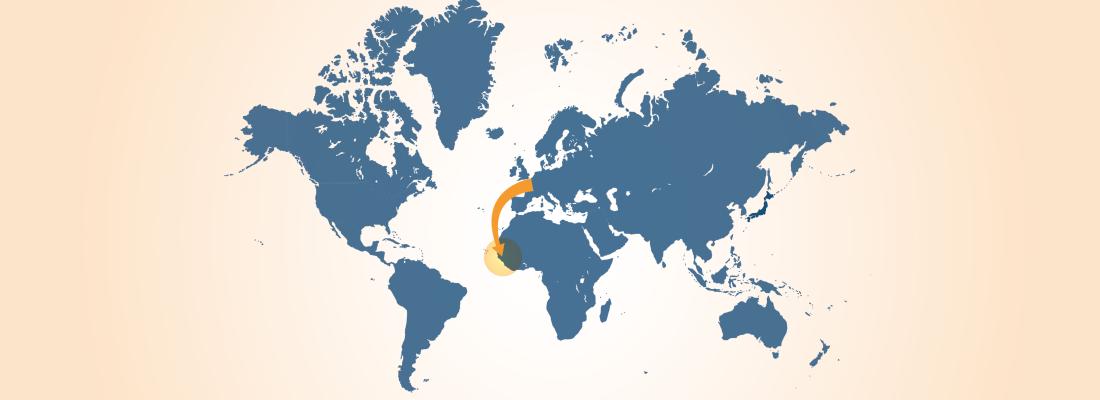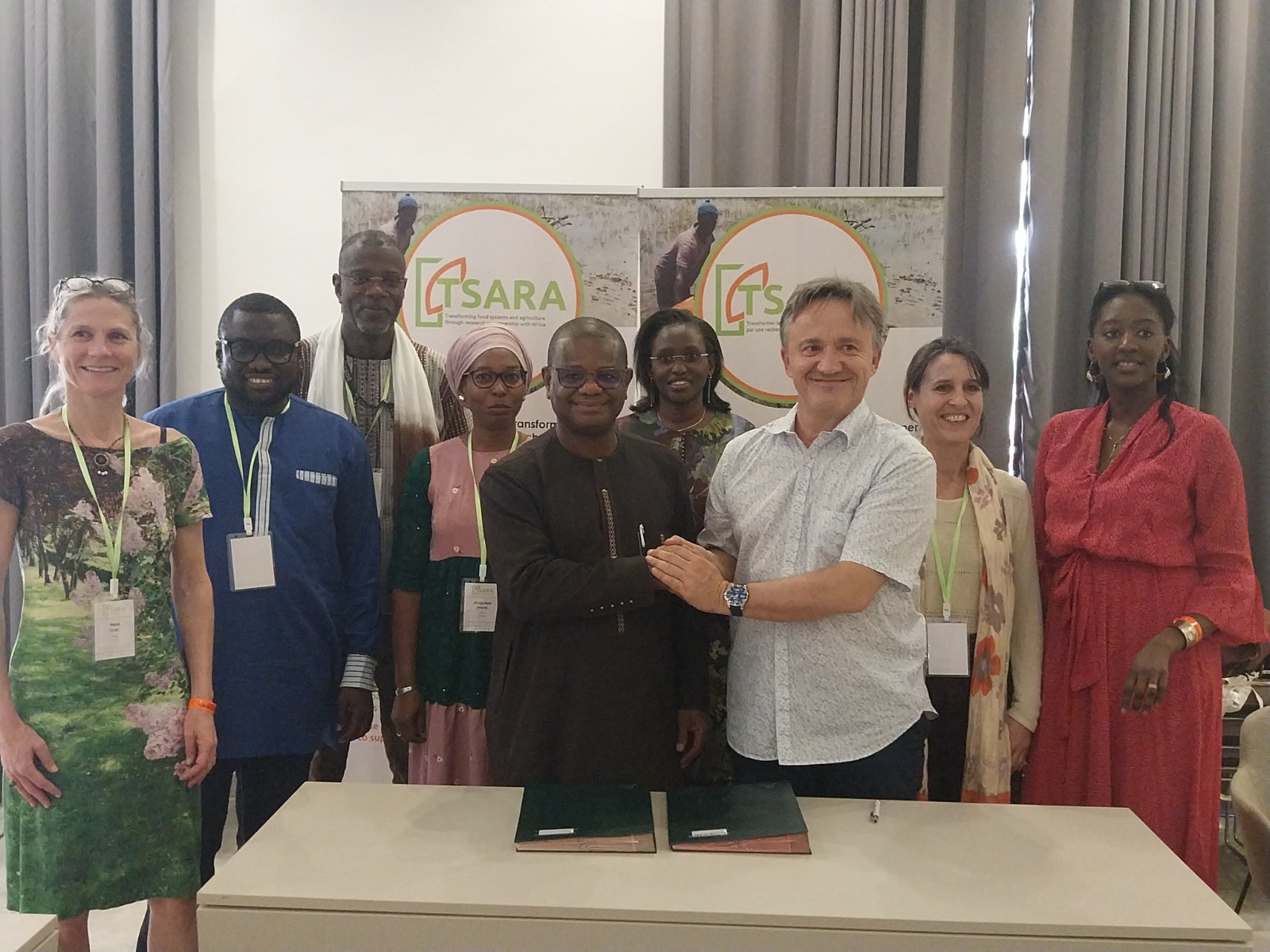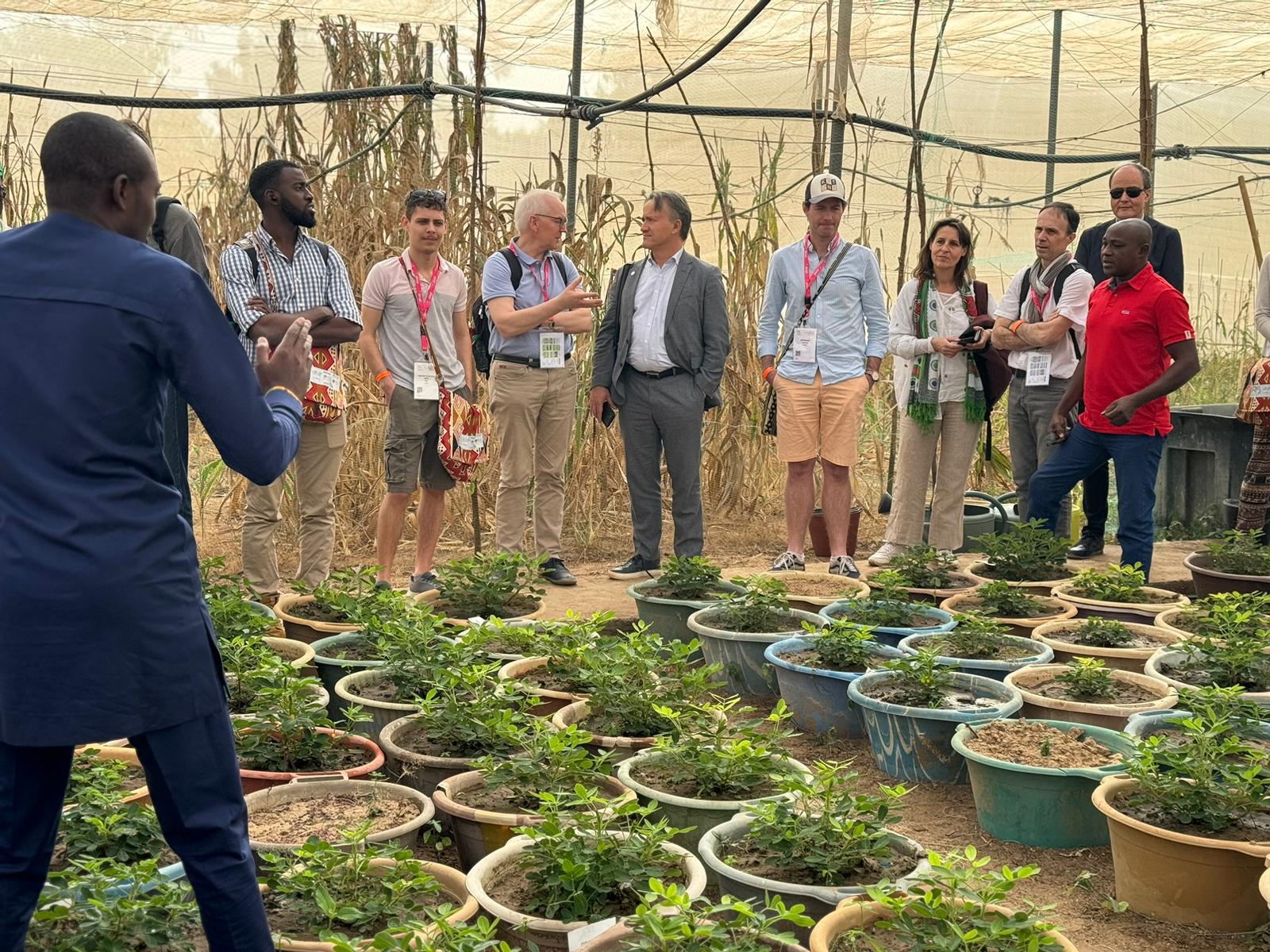Food, Global Health 7 min
INRAE in Senegal: working with African and French partners for the transition of agrifood systems
Two delegations from INRAE and CIRAD, both led by their CEOS, visited Senegal from 24 to 26 January 2024. The second general assembly of the TSARA partnership (Transforming Food Systems and Agriculture through Research in Partnership with Africa) provided an opportunity to highlight the concrete progress made by the initiative, with already more than 40 projects, and to validate its scientific agenda and 2-year action plan. In 2024, INRAE and the Institut sénégalais de recherches agricoles (Senegalese Institute for Agricultural Research, ISRA) will co-chair the initiative, with a future contribution that will be facilitated by the signing of the first framework agreement between the 2 institutes, enshrining existing scientific collaborations.
Published on 01 February 2024

TSARA, an international initiative with a partnership-based approach for transforming food systems
The second General Assembly of the TSARA international initiative, which now has 25 members (universities and research organisations) and associate members, was held on 25 January in Saly, Senegal. The meeting validated the initiative's scientific agenda and action plan, and welcomed 6 new participants. Momar Talla Seck, President of ISRA, and Philippe Mauguin, Chair and CEO of INRAE, will co-chair the initiative for the coming year.
“TSARA is an international initiative that proposes a new approach to research cooperation with partners on the African continent, connecting our partners in Africa, Europe and the rest of the world. It fits in perfectly with the objective jointly pursued by the African Union and the European Union, and beyond that, with the United Nations agenda on food systems” Philippe Mauguin
In order to contribute to the Sustainable Development Goals (SDGs) of the UN's 2030 Agenda, the transition productive, resilient, inclusive and sustainable food systems is necessary. This transformation must ensure food security and sovereignty, create quality jobs, while preserving natural resources such as water, soil and biodiversity, as well as global health, by adapting to and mitigating climate change in a context of demographic growth. The transformation of food systems is one of the 4 levers for action identified to achieve the 2030 Agenda.
TSARA ties in with the dialogue between the African Union and the European Union, and is based on co-construction between research institutions from the 2 continents. The aim of the TSARA initiative is to develop partnership-based research for the transformation of food systems, geared towards training, capacity building and impact, as well as support for public policies in Africa and Europe.
The first TSARA projects have been launched, involving a number of African partners, CIRAD and INRAE.
Since its launch in 2022, the initiative has enabled 2 major pilot projects to be started, led by partners from South Africa, Morocco, Senegal and Tunisia, together with CIRAD and INRAE: FAMA addressing nutrition, from the microbiota to public policies, and MAHDIA on the synergy between water management, food and agroecology.

In France and around the world, INRAE has been working for some 10 years to develop living labs, these innovative and participatory research facilities that place the user at the heart of their preoccupations.
In addition, some 40 starter projects, interknowledge projects and PhD scholarships have also been launched, supported by incentives from CIRAD and INRAE. Together with the resources required to run the secretariat and promote the initiatives, this represents a significant investment for INRAE over 3 years, amounting to nearly 1 million euros.
Financial support has in fact been in place at INRAE since 2022 to encourage INRAE teams and their partners in Africa to propose new concrete and promising projects in the context of TSARA. Two years on, the Institute has funded 17 projects to promote networking between African and French researchers, as well as 22 so-called starter projects, involving ultimately all of its 14 scientific divisions and bringing together more than 40 African research teams from 17 countries. Half of the projects also involve CIRAD teams. Lastly, the first 3 PhD subjects, jointly supervised and also involving CIRAD, are in the final validation phase, on topics such as bee health and pesticides (beekeeping as a lever for agroecological transition in tropical zones).
TSARA's strength lies in its ability to support initiatives of diverse and promising nature and scope, while at the same time creating new networks.
INRAE and CIRAD, an integrated partnership delivering results
In 2015, INRAE and CIRAD set up a joint international relations support unit, UMARI, with the shared aim of developing research that will benefit agricultural and food systems and associated natural resources wherever they are in the world. In particular, the aim is to support research partnerships abroad, an approach that has led to many scientific projects under TSARA, with partners in Senegal and other African countries.
The two institutes also support training initiatives, hosting young Senegalese researchers in INRAE and CIRAD laboratories, and two UNESCO chairs: the chair on the engineering of biobased products, which brings together the Gaston Berger University and other partners in Africa, and the future UNESCO chair project currently under study on digital agriculture.
Formalised collaboration with ISRA, INRAE's privileged partner in Senegal
The visit of the INRAE delegation to Senegal provided an opportunity to reaffirm and strengthen the collaboration with its Senegalese partners. On 26 January, INRAE and ISRA signed their first framework cooperation agreement, aimed at formalising scientific collaboration between the research teams of the two institutes.
ISRA is a major partner of INRAE in Senegal, working on a wide range of topics including agriculture, food, the environment and global health. The many joint projects and initiatives are carried out within the framework of bilateral and European projects, as well the TSARA initiative.
The framework agreement will provide a stronger structural framework to facilitate these collaborations. It provides for mobility between research teams, the development of joint research projects, the exploitation of research results and technology transfer. It is also intended to facilitate the search for national, regional and international funding and enable joint participation in international research or training programmes.

Partnership dynamics as part of an inclusive approach open to all research partners in Africa, Europe and the rest of the world
During the 4th edition of the Rencontres francophones légumineuses (French-speaking Meetings on Legumes, RFL), in Saly, a field visit was made to the experimental sites of the Centre d'étude régional pour l'amélioration de l'adaptation à la sécheresse (Regional Study Center for Improving Adaptation to Drought, CEERAS) in Thiès. These meetings, organised for the first time in Africa by CIRAD, INRAE, Terres Inovia and Terres Univia, focus on legumes adapted to temperate or tropical climates. Protein autonomy is a major issue around the Mediterranean basin, in sub-Saharan Africa and in Europe. These meetings provide opportunities for networking in this field and open up new prospects for collaboration and research.
The delegations from INRAE and CIRAD also met with the Campus franco-sénégalais (CFS). The CFS is an incubator for cooperation projects in the fields of training, research and innovation between Senegalese and French establishments and may also involve international organisations. Its primary aim is to stimulate and support the maturation and development of innovative projects. These may bring together French-Senegalese players from higher education, research and the private sector, as well as international organisations.
INRAE and the members of the Agreenium Alliance are working with 5 higher education partners in Senegal (École Polytechnique de Thiès, École supérieure Polytechnique, Gaston Berger University of Saint Louis, Thiès University, Assane Seck University of Ziguinchor) as part of an Erasmus international mobility project 2023-2025, for the mobility of students, PhD students and staff.
The Senegalese government is also a member of several international initiatives involving French research bodies, including INRAE, the international PREZODE initiative, the 4 per 1,000 initiative, of which several other African bodies are also members, the Global Soil Partnership and The Great Green Wall for the Sahara and Sahel.

